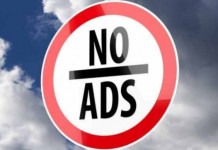 We’ve mentioned anti-piracy company Attributor a few times, as when they were selected for use in anti-piracy campaigns by the Associated Press in 2007, and John Wiley & Sons in 2009. More recently, they came out with some numbers suggesting an increase in piracy that provoked a certain amount of skepticism and refutation.
We’ve mentioned anti-piracy company Attributor a few times, as when they were selected for use in anti-piracy campaigns by the Associated Press in 2007, and John Wiley & Sons in 2009. More recently, they came out with some numbers suggesting an increase in piracy that provoked a certain amount of skepticism and refutation.
Lately, Attributor has produced a report suggesting that newspapers do not need to rely on legal action, such as the sort undertaken by copyright troll Righthaven, to get pirated content removed.
During a five-month trial the company conducted earlier this year, Attributor identified more than 400,000 unlicensed copies of 70,101 articles on about 45,000 sites, including stories from national and local newspapers. Attributor then randomly selected 107 sites from this group that hosted full copies of 10 or more texts in a 30-day period (Attributor defines full copies as texts that contain 80% or more of the original articles).
Attributor sent first a “courtesy notice” to the owner asking that they remove or license the content, and if they did not receive a response within two weeks sent a second warning, and contacted ad networks that used and search engines that listed the site requesting they stop doing so. At the end of the process, 75% of these sites had removed or licensed the content without requiring a DMCA notice.
It’s good to see that Attributor has a fairly high usage threshold for what it considers “piracy”—80% or more of the original article. This will help allay worries about a possible chilling effect on fair use of smaller portions. It’s also interesting that costly litigation can be avoided in so many cases—something that Righthaven has not even bothered to try. But then, Righthaven’s real goal is not protecting newspapers’ copyrights but making money.
































